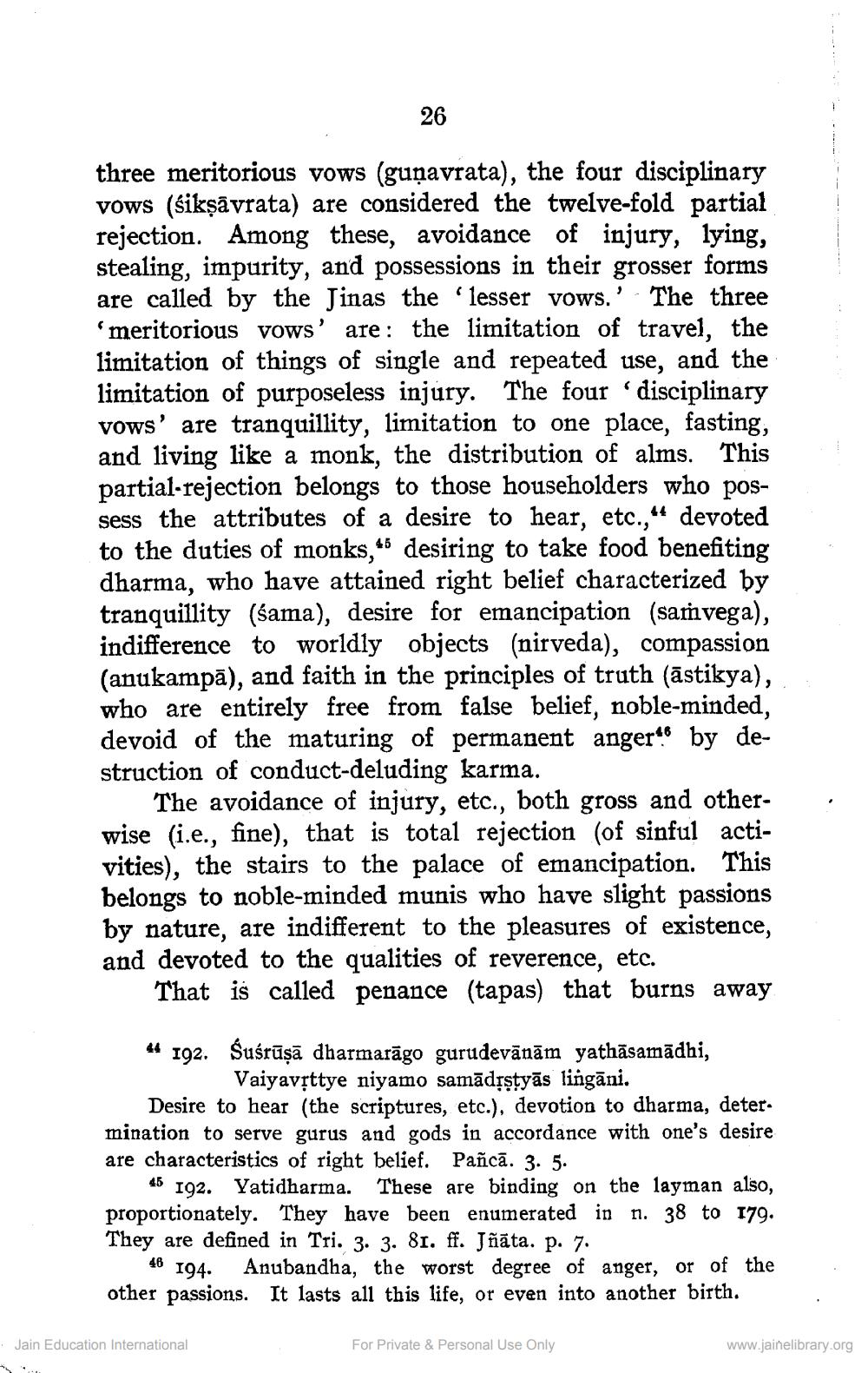________________
26
three meritorious vows (guņayrata), the four disciplinary Vows (sikṣāvrata) are considered the twelve-fold partial rejection. Among these, avoidance of injury, lying, stealing, impurity, and possessions in their grosser forms are called by the Jinas the 'lesser vows.' The three 'meritorious vows' are: the limitation of travel, the limitation of things of single and repeated use, and the limitation of purposeless injury. The four disciplinary vows' are tranquillity, limitation to one place, fasting, and living like a monk, the distribution of alms. This partial-rejection belongs to those householders who possess the attributes of a desire to hear, etc.,“ devoted to the duties of monks, 45 desiring to take food benefiting dharma, who have attained right belief characterized by tranquillity (sama), desire for emancipation (samvega), indifference to worldly objects (nirveda), compassion (anukampā), and faith in the principles of truth (āstikya), who are entirely free from false belief, noble-minded, devoid of the maturing of permanent angert by destruction of conduct-deluding karma.
The avoidance of injury, etc., both gross and otherwise (i.e., fine), that is total rejection (of sinful activities), the stairs to the palace of emancipation. This belongs to noble-minded munis who have slight passions by nature, are indifferent to the pleasures of existence, and devoted to the qualities of reverence, etc.
That is called penance (tapas) that burns away
44 192. Susrūsā dharmarāgo gurudevānām yathāsamādhi,
Vaiyavịttye niyamo samādsstyās lingāni. Desire to hear (the scriptures, etc.), devotion to dharma, determination to serve gurus and gods in accordance with one's desire are characteristics of right belief. Pañcā. 3. 5.
45 192. Yatidharma. These are binding on the layman also, proportionately. They have been enumerated in n. 38 to 179. They are defined in Tri. 3. 3. 81. ff. Jñāta. p. 7.
48 194. Anubandha, the worst degree of anger, or of the other passions. It lasts all this life, or even into another birth.
- Jain Education International
For Private & Personal Use Only
www.jainelibrary.org




